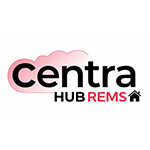Description

CentraHub REMS

iBroker
Comprehensive Overview: CentraHub REMS vs iBroker
CentraHub REMS and iBroker are both software solutions designed to serve the real estate industry, but they cater to different aspects and users within this market. Here's a comprehensive overview of both:
a) Primary Functions and Target Markets
CentraHub REMS:
- Primary Functions: CentraHub REMS (Real Estate Management Solution) is a comprehensive software designed to manage various real estate operations. It includes functionalities such as property management, leasing, sales, facilities management, and financial management. The software usually integrates CRM capabilities to help in managing customer interactions, leads, and deals efficiently. It also offers automation features for processes such as lease renewals, maintenance requests, and payment tracking.
- Target Markets: This product is primarily targeted at real estate developers, property management companies, real estate investors, and corporate real estate departments. It serves medium to large-scale enterprises that require detailed oversight and management of their real estate portfolios.
iBroker:
- Primary Functions: iBroker is a management system primarily designed for real estate brokerage firms. It focuses on business operations aspects such as transaction management, commission calculations, and office accounting. It simplifies the back-office operations for brokers, offering features that help in agent management, reporting, and financial tracking.
- Target Markets: The primary market for iBroker is real estate brokerage firms, particularly those looking to streamline their back-office operations. It's suitable for small to medium-sized brokerages seeking an efficient way to manage their financials and transactions.
b) Market Share and User Base
-
CentraHub REMS: Given its comprehensive range of features, CentraHub REMS is more suitable for larger organizations with extensive real estate portfolios. Its market share tends to be among developers and large property management firms in regions where there is a growing real estate sector. However, exact market share data can be difficult to pinpoint without specific market research reports.
-
iBroker: iBroker caters to a more niche market, specifically small to mid-sized real estate brokerages. Its user base is typically more localized to regions where these types of brokerages are prevalent. The market share for iBroker would be smaller compared to broader real estate management solutions, but it can hold significant sway within its focused niche.
c) Key Differentiating Factors
-
Functionality and Features: CentraHub REMS offers a wide range of features that encompass nearly every aspect of real estate management, making it suitable for large organizations that need comprehensive management tools. In contrast, iBroker focuses specifically on brokerage management, excelling in features that pertain to transaction and financial management within brokerages.
-
Target Audience: The primary differentiator is who the software is designed to serve. CentraHub REMS is more tailored for property managers and real estate developers, while iBroker is aimed at brokers and brokerage firms.
-
Scalability: CentraHub REMS is designed to handle scalability for large portfolios with multiple properties, offering more complex modules that can be customized. iBroker, on the other hand, provides a simplified and streamlined approach that fits the operational needs of smaller firms with potentially less complex financial requirements.
-
Integration and CRM Capabilities: REMS often includes strong integrations for CRM systems and other enterprise applications, which can be beneficial for larger firms looking for a unified solution. iBroker focuses more on integration with accounting tools and real estate transaction systems essential for brokerage operations.
Overall, both solutions have distinct roles within the real estate industry, and the choice between them largely depends on the specific needs related to the size, operations, and scale of the organization.
Contact Info

Year founded :
Not Available
Not Available
Not Available
Not Available
Not Available

Year founded :
2008
Not Available
Not Available
France
Not Available
Feature Similarity Breakdown: CentraHub REMS, iBroker
When comparing CentraHub REMS and iBroker, it's important to understand that both software solutions are designed to facilitate real estate management and operations. Here's a breakdown of their feature similarities and differences:
a) Core Features in Common:
-
Property Management: Both platforms offer comprehensive property management features, including lease and tenant management, maintenance scheduling, and document storage.
-
CRM Integration: They provide customer relationship management tools to help maintain client relationships, manage leads, and track communications.
-
Financial Management: Features like invoicing, expense tracking, and financial reporting are integral parts of both software solutions.
-
Reporting and Analytics: They offer analytics tools to provide insights into property performance, financial health, and operational efficiency.
-
Automated Workflows: Both solutions support automation of routine tasks to improve efficiency and reduce manual labor.
b) User Interface Comparison:
-
CentraHub REMS: Generally, CentraHub REMS is designed with a clean, modular interface focusing on ease of use. It tends to offer a high level of customization to meet various user preferences and specific business needs.
-
iBroker: The interface for iBroker is typically modern and intuitive, with emphasis on simplicity to ensure that users can easily navigate different features. It often appeals to users due to its streamlined nature, aiming for a straightforward user experience.
Overall, both interfaces are designed to be user-friendly and cater to users with varying levels of technical expertise, though the degree of customization and visual appeal can differ based on user needs.
c) Unique Features:
-
CentraHub REMS:
- Highly Customizable Modules: CentraHub REMS offers a high degree of customization, which can be particularly beneficial for businesses with unique workflows or specialized needs.
- Integration Capabilities: Strong integration with third-party applications and tools for enhanced functionality, which can be tailored to specific business processes.
-
iBroker:
- Brokerage-Specific Features: iBroker is particularly tailored for real estate brokers with features that cater to brokerage management, like commission tracking, agent management, and transaction management.
- Simplified Onboarding: It features an intuitive onboarding process that aims to get brokerage businesses up and running quickly with minimal hassle.
These differences highlight CentraHub REMS's versatility and adaptability, whereas iBroker focuses on niche needs specific to real estate brokerage. When choosing between these two, it would be wise to consider the specific requirements of your business, the level of customization you desire, and the primary functions you need the software to fulfill.
Features

Maintenance Management
Property Management
Financial Reporting
Tenant Management
Customer Service
Sales and Marketing
Finance and Accounting

Client Management
Analytical Insights
Transaction Processing
Compliance and Reporting
Best Fit Use Cases: CentraHub REMS, iBroker
CentraHub REMS and iBroker are specialized solutions for different aspects of real estate management and brokerage. Here's a breakdown of their best fit use cases:
a) CentraHub REMS
Types of Businesses or Projects:
- Real Estate Developers: CentraHub REMS is tailored for large-scale real estate developers who need a comprehensive system to manage various projects, properties, and stakeholder interactions.
- Property Management Firms: Ideal for property management companies responsible for handling multiple properties, including rentals, leasing, and sales.
- Commercial Real Estate Companies: Suitable for firms managing commercial spaces, such as office buildings, malls, and industrial parks.
- Mixed-Use Project Managers: Projects that involve a combination of residential, commercial, and recreational facilities can benefit from the integrated modules in REMS.
Features and Use Cases:
- Integrated Systems: Offers modules for property management, finance, customer relationship management, and facility management.
- Scalability: Can accommodate the needs of large enterprises with expansive real estate portfolios.
- Reporting and Analytics: Provides in-depth reporting capabilities for informed decision-making and strategic planning.
b) iBroker
Scenarios for Preferred Use:
- Real Estate Brokerages: iBroker is specifically designed for real estate brokers who need a streamlined solution for managing listings, client interactions, and transactions.
- Independent Real Estate Agents: Individual agents who require a user-friendly platform to manage their book of business efficiently.
- Small to Mid-Sized Firms: Particularly advantageous for smaller brokerages that need robust features without the complexity of enterprise systems.
Features and Use Cases:
- Transaction Management: Simplifies the process of managing offers, contracts, and closings.
- Lead and Client Management: Includes CRM functionalities tailored to the needs of real estate professionals for managing leads and client relations.
- Integration: Provides integration capabilities with popular real estate platforms and MLS systems.
d) Catering to Different Industry Verticals or Company Sizes
CentraHub REMS:
- Industry Verticals: Primarily targets verticals such as residential and commercial real estate, property management, and construction.
- Company Sizes: Best suited for medium to large enterprises that require a broad spectrum of functionalities to manage extensive property portfolios.
iBroker:
- Industry Verticals: Focuses on the real estate brokerage industry, addressing the specific needs of sales and transaction management.
- Company Sizes: More adaptable to small and mid-sized firms, offering a cost-effective solution with essential tools for managing brokerage operations.
In summary, CentraHub REMS and iBroker serve distinct roles within the real estate sector, with REMS being more suitable for comprehensive property management across larger projects and iBroker being tailored for brokerage firms and independent agents who need efficient tools for sales and transaction oversight.
Pricing

Pricing Not Available

Pricing Not Available
Metrics History
Metrics History
Comparing undefined across companies
Conclusion & Final Verdict: CentraHub REMS vs iBroker
When evaluating real estate management software, both CentraHub REMS and iBroker have their strengths and weaknesses. Here's a comprehensive conclusion with a final verdict, comparing the two based on various factors:
a) Best Overall Value
Overall Value: CentraHub REMS generally offers better value for businesses with complex, larger-scale real estate operations due to its extensive feature set and customization capabilities. However, for smaller companies or individual users focusing on brokerage services, iBroker might present better value due to its straightforward design and ease of use.
b) Pros and Cons
CentraHub REMS:
Pros:
- Comprehensive Feature Set: Offers a wide range of tools for property management, customer relationship management (CRM), finance, and analytics.
- Customization and Scalability: Highly customizable to fit specific needs; scales well with the growth of a company.
- Integration Capabilities: Can integrate with various third-party apps, allowing seamless operations across different business functions.
Cons:
- Complexity: Might be overwhelming for small businesses due to its extensive features.
- Cost: Higher up-front and ongoing costs, potentially too expensive for smaller entities with limited budgets.
- Implementation Time: Longer setup and implementation time because of its comprehensive nature.
iBroker:
Pros:
- User-Friendly Interface: Simple and intuitive, making it easy for users to navigate without extensive training.
- Cost-Effective: Lower cost structure, providing affordability which is attractive to small and mid-sized brokerages.
- Specialization in Brokerage Needs: Tailored features that cater specifically to brokerage management functions.
Cons:
- Limited Features for Large Operations: May lack the depth and breadth needed for complex real estate management compared to robust systems like CentraHub REMS.
- Scalability Issues: Might not scale as effectively for very large enterprises or as a company grows and requires more comprehensive management solutions.
c) Recommendations for Users
For Users Considering CentraHub REMS:
- Choose CentraHub REMS if your organization requires a robust and integrated solution that covers multiple facets of real estate management and if you have the resources for a potentially higher cost structure.
- Ideal for larger organizations or those planning rapid expansion that necessitates a scalable solution.
For Users Considering iBroker:
- Opt for iBroker if you run a small to medium-sized brokerage that values ease of use and cost-effectiveness, and your main focus is on managing brokerage operations efficiently.
- Best suited for users who prefer straightforward functionality without needing the exhaustive features offered by larger systems.
In conclusion, the choice between CentraHub REMS and iBroker primarily depends on the size of your organization, budget, and specific needs. Larger entities with comprehensive management requirements would likely benefit more from CentraHub REMS, while smaller brokerages looking for cost-effectiveness and simplicity would find iBroker to be a better fit.
Add to compare




